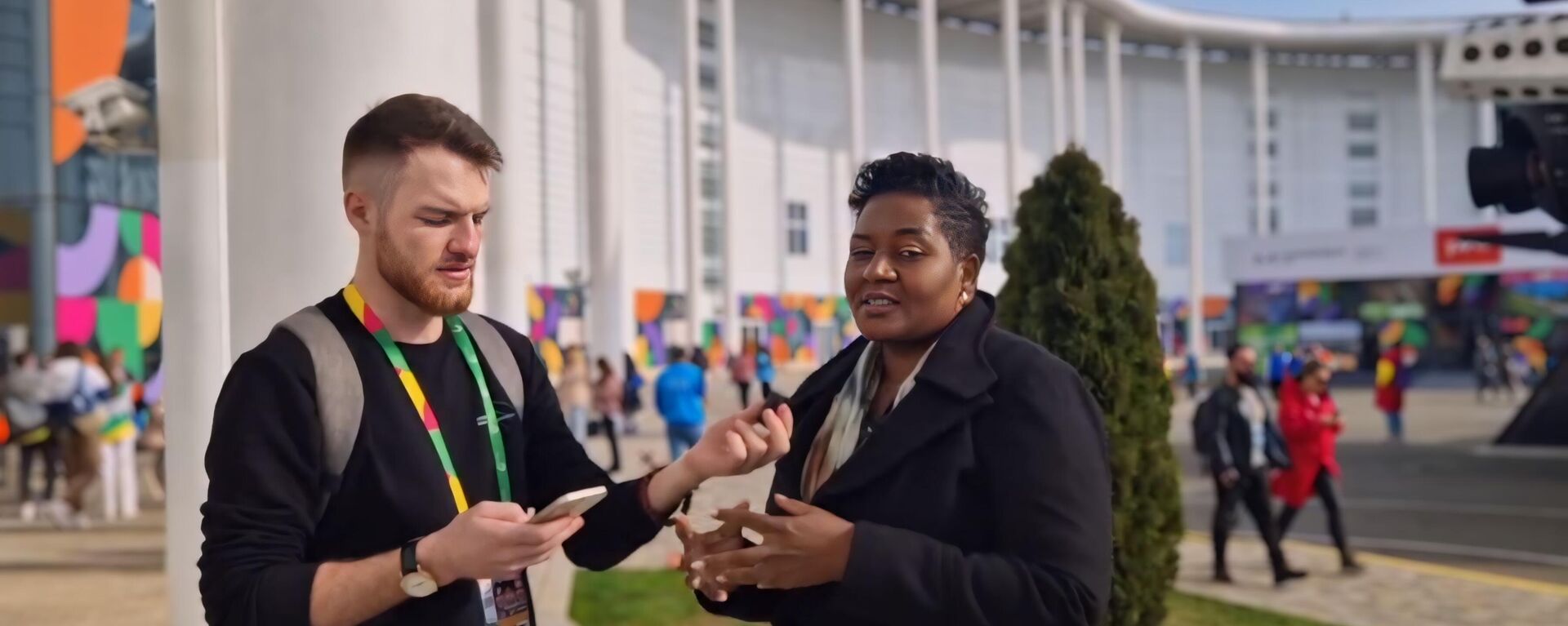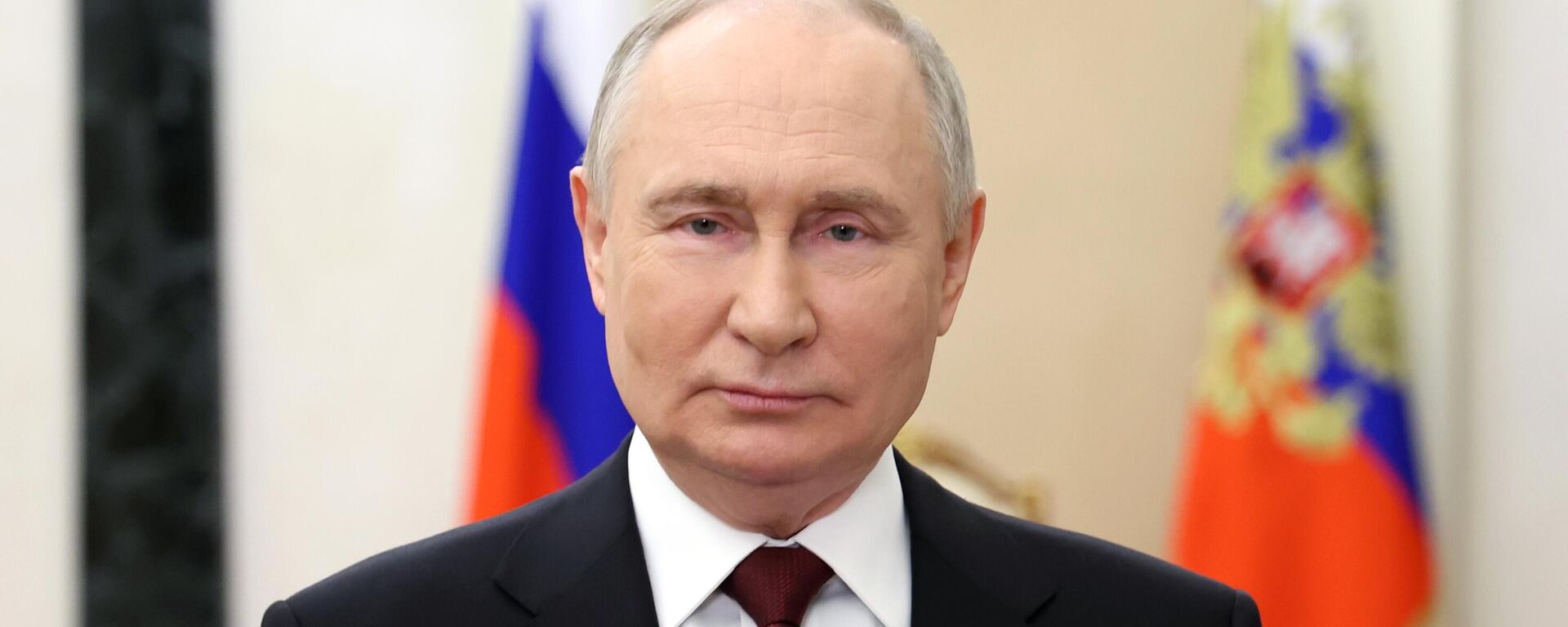https://en.sputniknews.africa/20240304/africa-russia-partnerships-should-focus-on-education--technology-head-of-zambian-graduates-alumni-1065378308.html
Africa-Russia Partnerships Should Focus on Education & Technology: Head of Zambian Graduates Alumni
Africa-Russia Partnerships Should Focus on Education & Technology: Head of Zambian Graduates Alumni
Sputnik Africa
On March 1, the world's largest youth festival kicked off in Sirius, Russia. The event, which will last until March 7, has brought together more than 20,000... 04.03.2024, Sputnik Africa
2024-03-04T17:19+0100
2024-03-04T17:19+0100
2024-03-06T10:48+0100
russia
zambia
sputnik africa
united nations (un)
russia-africa cooperation
cooperation
development
education
technology
southern africa
https://cdn1.img.sputniknews.africa/img/07e8/03/04/1065381173_30:0:1538:848_1920x0_80_0_0_c72adea75abe21e7aacf7cd33eb74dce.png
There is a longstanding and good relationship between Russia and African countries, Zambia in particular, dating back to pre-independence times. Meanwhile, there is a great potential for enhanced cooperation, Patricia Kalinga, President of the Zambian-Russian Graduates Alumni Association (ZAMRUS), told Sputnik Africa on the sidelines of the World Youth Festival.Kalinga, who also serves as a loan guarantee officer at the UN Capital Development Fund in Zambia, commended the increase in scholarships offered to Zambian students in Russia, citing the significant opportunities this creates for knowledge exchange and skill development.Highlighting the broader impact of African students studying in Russia on the development of their home countries, Kalinga underscored the importance of knowledge sharing and international collaboration, highlighting instances where Russian-educated professionals have assumed leadership roles in companies operating in Zambia.By leveraging the expertise and experience gained through their education in Russia, African graduates are not only contributing to the growth of their nations but also fostering deeper ties between Africa and Russia in the business and professional spheres, she explained.Discussing the significance of Africa's engagement with global powers like Russia, Kalinga stressed the importance of technology transfer and the exchange of educational best practices. She articulated the need for African countries, including Zambia, to learn from Russia's advancements in technology and innovation.Looking toward the future, Kalinga expressed her belief in the transformative potential of Russian-African partnerships focused on technology and education.Kalinga also emphasized the need for greater awareness and understanding of Russia's positive attributes, beyond what may be portrayed in Western media narratives.By fostering a deeper exchange of experiences and perspectives through direct interactions, Kalinga believes that misconceptions can be dispelled, leading to enhanced collaboration and mutual understanding between Africa and Russia.
https://en.sputniknews.africa/20240303/world-youth-festival-opens-opportunities-for-russia-african-cooperation-says-namibian-official-1065369012.html
https://en.sputniknews.africa/20240302/1065358434.html
russia
zambia
southern africa
Sputnik Africa
feedback@sputniknews.com
+74956456601
MIA „Rossiya Segodnya“
2024
Muhammad Nooh Osman
https://cdn1.img.sputniknews.africa/img/07e7/04/0a/1058467512_0:0:1280:1280_100x100_80_0_0_ec723833bcbfcaed2e21952965ad99e4.jpg
Muhammad Nooh Osman
https://cdn1.img.sputniknews.africa/img/07e7/04/0a/1058467512_0:0:1280:1280_100x100_80_0_0_ec723833bcbfcaed2e21952965ad99e4.jpg
News
en_EN
Sputnik Africa
feedback@sputniknews.com
+74956456601
MIA „Rossiya Segodnya“
Sputnik Africa
feedback@sputniknews.com
+74956456601
MIA „Rossiya Segodnya“
Muhammad Nooh Osman
https://cdn1.img.sputniknews.africa/img/07e7/04/0a/1058467512_0:0:1280:1280_100x100_80_0_0_ec723833bcbfcaed2e21952965ad99e4.jpg
russia, zambia, sputnik africa, united nations (un), russia-africa cooperation, cooperation, development, education, technology, southern africa, africa insight, world youth festival 2024, world youth festival, africa in details
russia, zambia, sputnik africa, united nations (un), russia-africa cooperation, cooperation, development, education, technology, southern africa, africa insight, world youth festival 2024, world youth festival, africa in details
Africa-Russia Partnerships Should Focus on Education & Technology: Head of Zambian Graduates Alumni
17:19 04.03.2024 (Updated: 10:48 06.03.2024) Muhammad Nooh Osman
Writer/Editor
On March 1, the world's largest youth festival kicked off in Sirius, Russia. The event, which will last until March 7, has brought together more than 20,000 young people from Russia, Africa and around the world from various fields. Sputnik is the official media partner of the event.
There is a longstanding and good relationship between Russia and African countries, Zambia in particular, dating back to pre-independence times. Meanwhile, there is a great potential for enhanced cooperation,
Patricia Kalinga, President of the Zambian-Russian Graduates Alumni Association (ZAMRUS), told
Sputnik Africa on the sidelines of the
World Youth Festival.Kalinga, who also serves as a loan guarantee officer at the UN Capital Development Fund in Zambia, commended the increase in scholarships offered to Zambian students in Russia, citing the significant opportunities this creates for knowledge exchange and skill development.
"When I look at the students who were once here in Russia, they are doing so much better. They work in government, they work in United Nations. We have entrepreneurs. These are the people who benefited from the Russian education," she said.
Highlighting the broader impact of
African students studying in Russia on the development of their home countries, Kalinga underscored the importance of knowledge sharing and international collaboration, highlighting instances where Russian-educated professionals have assumed leadership roles in companies operating in Zambia.
By leveraging the expertise and experience gained through their education in Russia, African graduates are not only contributing to the growth of their nations but also fostering deeper ties between Africa and Russia in the business and professional spheres, she explained.
"It is becoming an international event for Zambians who were once in Russia to get involved in these types of businesses and to work with Russians," ZAMRUS head said.
Discussing the significance of Africa's engagement with global powers like Russia, Kalinga stressed the importance of technology transfer and the exchange of educational best practices. She articulated the need for African countries, including Zambia, to learn from Russia's advancements in technology and innovation.
"We need to learn more from Russia in terms of technology," she assumed. "If we tap some of the magic that they are doing here in Russia, I think we can do better in Africa. We need to learn more. We need to send more students and have some interactive programs like the World Youth [Festival], which is very good. I think such things will help Africa develop more and have more connections with Russia."
Looking toward the future, Kalinga expressed her belief in the transformative potential of Russian-African partnerships focused on technology and education.
Kalinga also emphasized the need for greater awareness and understanding of Russia's positive attributes, beyond what may be portrayed in Western media narratives.
By fostering a deeper
exchange of experiences and perspectives through direct interactions, Kalinga believes that misconceptions can be dispelled, leading to enhanced collaboration and mutual understanding between Africa and Russia.
"I don't think people know more about Russia. I think there's that blockage of information, or maybe there's so much propaganda right now," she argued. "They are not showing the good side of Russia, but just stories. I think it would be better if people come and have their own experience, and they can give their own opinion."




